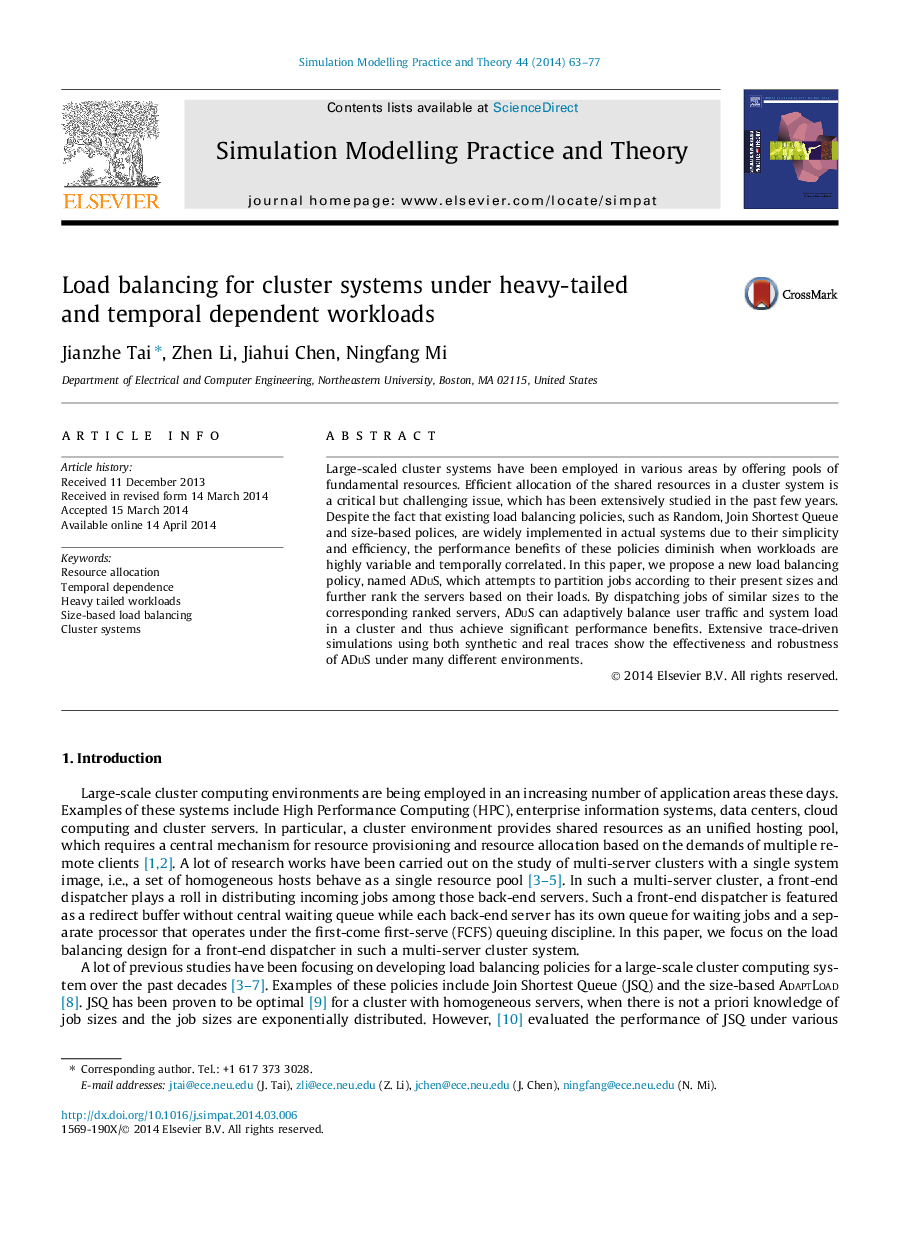| Article ID | Journal | Published Year | Pages | File Type |
|---|---|---|---|---|
| 492182 | Simulation Modelling Practice and Theory | 2014 | 15 Pages |
Large-scaled cluster systems have been employed in various areas by offering pools of fundamental resources. Efficient allocation of the shared resources in a cluster system is a critical but challenging issue, which has been extensively studied in the past few years. Despite the fact that existing load balancing policies, such as Random, Join Shortest Queue and size-based polices, are widely implemented in actual systems due to their simplicity and efficiency, the performance benefits of these policies diminish when workloads are highly variable and temporally correlated. In this paper, we propose a new load balancing policy, named ADuS, which attempts to partition jobs according to their present sizes and further rank the servers based on their loads. By dispatching jobs of similar sizes to the corresponding ranked servers, ADuS can adaptively balance user traffic and system load in a cluster and thus achieve significant performance benefits. Extensive trace-driven simulations using both synthetic and real traces show the effectiveness and robustness of ADuS under many different environments.
